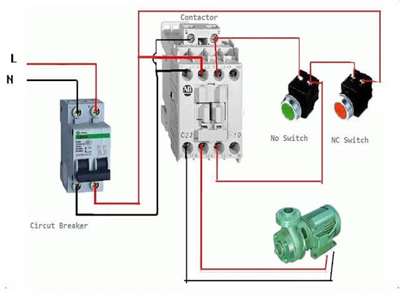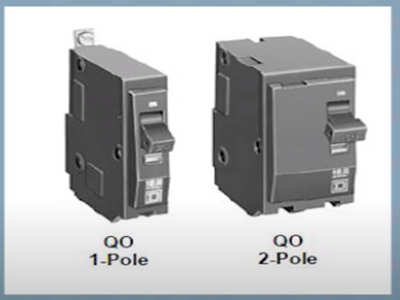What happens when a breaker goes bad?
Does the circuit breaker go bad? Yes, but it is a rare case. If your circuit breaker is not working you may test it. There are some easiest ways to test it that we have given below. On the other hand, breaker testing is not expensive based on its protection capacity. If you have a circuit breaker tester or circuit breaker finder or if you have a multimeter then you can easily find your damaged circuit breaker. However, the breaker is always designed to protect the device and give 100% values but sometimes circuit breakers go bad but it is a rare case. But if the circuit breaker goes bad then what can we do about it? Don’t worry we will let you know in this section how often do circuit breakers go bad.
How often do circuit breakers go bad?
Can the circuit breaker go bad? Or what happens when a breaker goes bad? If the breaker goes bad then how do you replace a bad circuit breaker? The simple answer is YES circuit breaker goes bad. Basically, the circuit breaker is used in homes, industries, and other applications to protect crucial devices from damage due to short circuit currents or overloading.
Sometimes circuit breakers go bad due to some crucial reason, such as circuit breaker diagnosis. However, we are going to show you three steps for a circuit breaker to go bad. So take a look and become clear on how often circuit breakers go bad.
Get the Best Way to Get rid of such a Condition.
- First of all, you should identify that your circuit breaker is creating the problem.
- You should unplug all devices plugged into that circuit.
- In the third step, you should reset the circuit breaker but before you reset it make sure that your home appliances are off.
If all the steps fix the circuit breaker then there is a great chance that your circuit breaker is faulty. On the other hand, you can manually test it and you may use a circuit breaker finder to locate your circuit breaker in your circuit breaker panel. If you don’t have a circuit breaker finder then you can use a multimeter and put the positive probe to the line and the negative probe to the neutral or ground.
If you get voltage then your breaker is good or if you don’t get any voltage then you become sure that your circuit breaker has gone bad. You can do this process for your single pole circuit breaker and double-pole circuit breaker. But never forget if your circuit breaker is good then you will get 120 volts for a single pole circuit breaker and you will get 240 or 250 volts for the double pole circuit breakers. If the circuit breaker becomes bad then no voltage will show for a single-pole circuit breaker.
What Causes a Circuit Breaker to Fail?
In most cases, short circuit, power surge, spikes, overload, and other undesired reason is highly responsible for the circuit breaker going bad. If the circuit breaker goes bad then the breaker fails to trip whenever needed. In this case, we need to know why the circuit breaker fails. The answer is easy bad circuit breaker fails to protect the device. If we explain it then it will be clear. However, there are some common causes for a circuit breaker to fail.
- Constant overload.
- Short circuit.
- Ground fault.
Constant overload
Have you ever used any circuit breaker that has been tripped due to overload? Overload is the major reason to trip your circuit breaker. However, if an overload occurs heavy heat is generated in the breaker mechanism area. If the temperature is high and reaches the circuit breaker optimum level then the breaker trip and stop the current follow. Basically, overload is not a sustainable condition because the load varies from time to time.
You can say if overload occurs then how to get rid of this condition. Basically, overload depends on you if you run more appliances and have more ampere than your installed breaker capacity then overload occurs. In this case, you should find the best circuit breaker that is able to endure such overloads of those loads you are using. You should choose a circuit breaker those have more amperes rating than your current breaker rating.
Short circuit
A short circuit is a common reason in the electrical power system for low voltage and high voltage applications. Sometimes circuit breakers can fail to trip due to a failure tripping mechanism and it can happen due to a short circuit. If electricity is discrete from its path then a short circuit occurs. For example, you have the line and neutral if the current suddenly enters a neutral instead of phase then a short circuit occurs.
Sometimes a question appears does a short circuit dangerous? Yes, a short-circuit current is more dangerous. The circuit breaker is used to resist the short circuit current and disconnect the circuit connection to stop the over-current flow. If a short circuit occurs the short circuit area becomes overheated which causes an arc is generated. For this reason, test it and become sure about its tripping system and if a short circuit occurs then it can prevent overcurrent and break the circuit.
Ground fault
A ground fault is the most common reason. Whenever a hot wire touches the metal housing of the appliance then ground fault occurs. In this case, the housing becomes energized and the ground wire works to return the electricity to the main source.
Indeed electrical energy always takes the lowest resistance path. If any human touches the energized housing without insulation or ground wire then he/she will get an electric shock. However, if a ground fault occurs the medium becomes overheated, and the current is also very high than the circuit breaker or fuse circuit breaking capacity.
In this case, the circuit breaker or electrical fuse will blow and bind the flow of electricity. It is noted that if a ground fault occurs after the load there is still resistance in the circuit then the circuit breaker will not trip because it depends on the component affected.
If you would like to get rid of the ground fault, you should use a GFCI (ground fault circuit Interrupter) breaker. The GFCI circuit breaker is a ground fault interrupter breaker. It monitors the current between the neutral wire and the hot wire. If a small number of current leaks to the ground then the GFCI will trip and safe the circuit from damage. So it is extremely necessary to become safe from a ground fault.
How to wire a single pole breaker?

The single-pole circuit breaker is a protective device that is used for overcurrent, overload, and ground fault protection purposes. The single-pole circuit breaker is a one-pole breaker where one incoming and outgoing line and neutral is connected. It is sometimes called a one-way circuit breaker. However, we will let you know how to wire a 30 amp single pole breaker or how to install a single pole circuit breaker. So let’s start our wiring term.
- First of all, before installing or wiring a single-pole circuit breaker, you must remove or stop the electrical supply.
- Bring your breaker and place it in the installation box and bring the line and connect to the primary side. And connect another wire to the breaker’s secondary side for the load.
- Connect the ground wire to the ground bus.
- After wiring a single-pole breaker you should check whether it is working properly or not.
- To test this, you need a multimeter, and positive probe of the meter to keep on the line, and a negative probe of the meter to keep the neutral point. If your meter shows the exact voltage then your connection is the right connection.
What is a single pole vs. double pole breaker?
Single pole and double circuit breaker both are used for protection purposes. The difference between single vs. double pole breaker protection systems is similar but there is some reason that has separated them. However, we will let you know the difference between single and double pole circuit breakers so get in touch with us:
- Single pole breaker is thinner and has a one-way push lever but double pole breakers are quite larger and have two push levers.
- Single pole breaker provides 120 volts service, is rated for 15 to 20 Ampere, and connects with two conductors. The double pole breaker provides 240 volts service and a current rating of 20 to 60 Ampere with three conductors.
- A double-pole breaker is used for high voltage applications (240 volts) and high amperes but a single-pole breaker is used for low voltages and low amperes.

It is noted that single pole circuit breaker vs double pole depends on your requirements. Which breaker do you like most to use and where do you want to use it? But you need a technical brain to install those breakers because if you make any mistakes you may face a severe accident.
How long do circuit breakers last?
A circuit breaker is a protective device used to provide better or safe crucial electronic devices from surge power. If you would like to install a circuit breaker then you may have this question how long do breakers last? Basically, there is no specific time for it. An estimate shows that the circuit breaker’s life span is almost 40 years but it depends on the construction and maintenance process. However, if you think about ground fault interrupter (GFCI) circuit breakers or arc-fault circuit interrupters (AFCI) they can last 10 years to 15 years. Basically, a humid environment is the main reason for the breaker’s shortening life span. ”View source”
Conclusion
Basically, all the low voltage circuit breakers have a rated voltage of fewer than 600 volts single pole and double pole breaker is used for low voltage We have discussed here how often circuit breakers go bad but we have also used a different term to clarify your concept. The above section will give you the right solution for circuit breaker details. It is noted that we can give you the right direction but you have to implement it. However, if you would like to know more about other protective devices then get in touch with Open Read.

